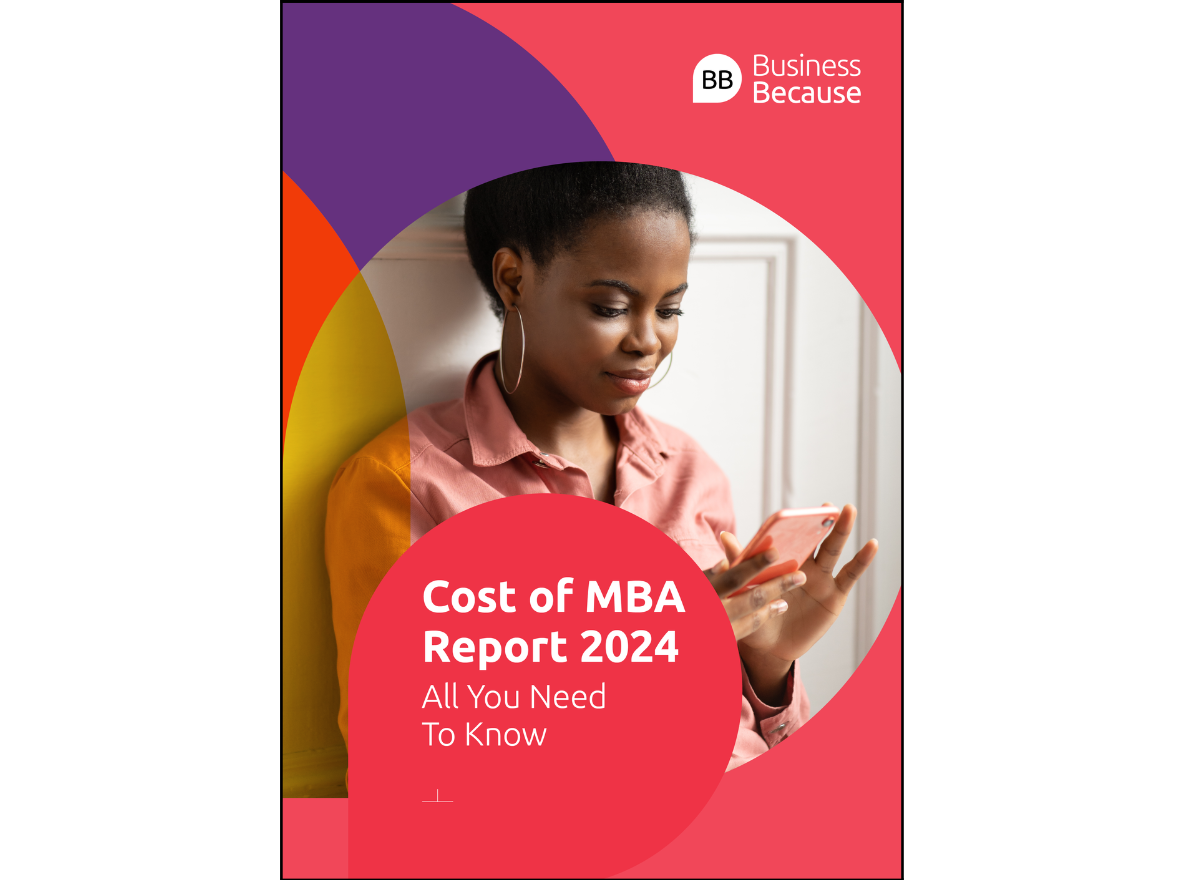With geopolitical upheaval, the continuing impact of COVID, and rising everyday living costs, the idea of doling out more than $100k for a two-year education might be an intimidating prospect.
Living costs in the US, including gasoline, food, and housing, have been soaring—76% of American employees say that the cost of living is outpacing the growth in their wages compared with 67% in 2023.
The cost of living has had a knock-on effect on the cost of an MBA. As seen in our 2024 Cost of MBA Report, the top-ranked US schools raised their tuition fees by an average of 3.1%, costing an average of $165,503 for a two-year program in 2024.
This, plus the rising cost of living, has seen the average total price of a top US MBA rise by 12% since 2021—from $217,000 to $243,267.
While these rising costs may feel daunting, MBA graduates enjoy improved employability, a wider professional network, and can command an enhanced salary. Is it worth the investment, then?
MBA ROI: Recruiters and business school graduates
A major plus is that business school graduates can benefit from large companies and high-level employers recruiting directly from the school.
This year, GMAC's Corporate Recruiter's Survey included nearly 1000 respondents, including corporate recruiters and staffing firms. In the survey, over a third of employers expect to hire more newly minted MBAs this year than they did in 2023, with average starting salaries expected at approximately $120,000.
Recruiters favor business school graduates because of the preparation they undergo and the guarantee of success—around 90% of corporate recruiters said they are either highly confident or confident in the ability of business schools to prepare students to be successful in their organizations.
Download our Cost of MBA Report 2024
MBA ROI: Salary increase
Arguably the most significant ROI is the salary increase that MBA graduates can command.
The GMAC study, The Value of Graduate Management Education: From the Candidate's Perspective, found that 85% of graduates said that their investment in Graduate Management Education (GME) had a positive return. Around two-thirds of business school graduates reported they advanced at least one job level after their degrees, and three out of four say that GME helped them achieve personal, professional, and financial goals.
"An overwhelming majority of graduates testified that their business degree increased their employability and earnings power, prepared them for leadership positions, and supported their desired lifestyle," said Sangeet Chowfla, president and CEO of GMAC in the study.
Data from the Financial Times backed up the survey's findings, showing that MBA graduates from the top 21 business schools enjoyed a 127% salary increase within three years of graduation.
For more information, check out our article on the highest-paying MBA jobs.
"Graduate management education is an investment, and the MBA degree continues to provide the strongest return on investment of any master's degree in terms of career compensation," says Brian Mitchell, Associate Dean of Full-Time MBA Programs at Emory University Goizueta Business School.
“And just as important, the return on the MBA investment includes lifelong skills in leadership, critical thinking, problem-solving, ethics, and much more as part of the academic experience,” he adds.
MBA ROI: Network benefits
Finally, when weighing up the benefits of an MBA and its ROI, applicants should also look beyond the numbers and consider the advances in their professional careers. MBA graduates are rewarded for their investment with a robust professional network.
During an MBA, you can connect with a network of alumni, classmates, mentors, professors, and business leaders that you meet. The network you create is vital in boosting your MBA ROI and should be a significant factor in business school research.
This article was written in 2022 but has been updated with 2024 data.



